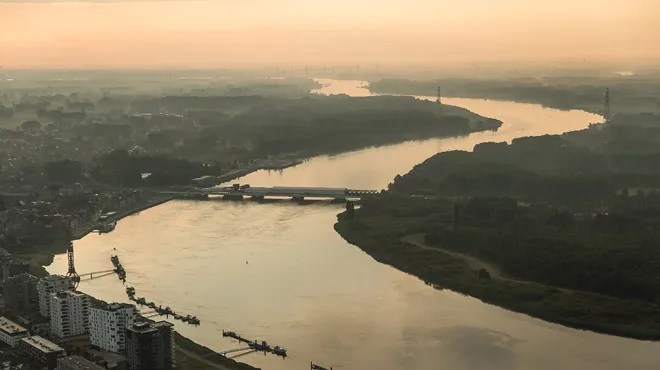French sugar-producing giant Tereos, recently sentenced in Wallonia to pay more than €9 million in compensation for environmental damages to the river Scheldt in 2020, appealed against the judgement on Thursday.
The pollution took place in Northern France, where a dyke collapsed on land owned by the company, dumping thousands of tonnes of sugar-beet pulp into the water. This pulp draws oxygen from the water, suffocating fish and wildlife.
While Flemish authorities were able to pump oxygen into the water to limit the impact, Walloon authorities did not and massive environmental damage resulted. It could take two to three years for the harm to be repaired and investigators in Wallonia concluded that there had been a “90% reduction in the number of fish, and that half of fish species have been wiped out.”
Two civil lawyers announced the appeal in a comment to French newspaper Voix du Nord. Civil parties in the case have said that they will challenge Tereos again.
The Lille Criminal Court found Teroes guilty on 12 January of “negligence” and other charges in relation to the maintenance of its facilities. The court ordered the company to pay a fine of €500,000 to compensate civil parties, as well as €8.86 million to Wallonia State.
Related News
- 'Catches of 4,000 kg in few days': Shrimp explosion off Belgian coast
- Drought sees plans for industrial site replaced with large-scale water reserve
Several environmental associations, as well as communities such as the city of Antoing, are set to receive several thousands of euros each for moral and material damages, often in relation to the ecological damages sustained.
Despite the conviction, Teroes escaped the obligation to “repair the environmental damage” caused by the incident, following a prefectural decree in August 2021 which already committed the company to repair measures. The company’s lawyer, Alexandre Moustardier, pointed to a “chain of responsibilities or multiple responsibilities” among public and private actors.
Wallonia’s groundwater is already heavily contaminated with nitrates and pesticides. 80% of the region’s drinking water is drawn from these aquifers. Belgium has by far the highest levels of phosphates in its rivers at over 0.2 milligrams per litre, almost four times over the EU average.

